How doctors handle fear and stress during the pandemic
When the first local transmission of the coronavirus in the country was confirmed in March, hospitals around the metro braced for a possible surge of COVID-19 patients. While others struggled, some rose to the challenge.
Makati Medical Center’s (MMC) COVID-19 journey is one for the books.
With no vaccine and antibiotics available yet to treat the deadly virus, MMC’s management and medical staff had to bank on what they’d learned so far from the experiences of hospitals and medical workers in Wuhan, China; in Italy and in Korea.
“How do we deal with something that’s totally unknown to us?” asks MMC medical director Dr. Saturnino “Bong” Javier. “And so the strategy must be fully encompassing, swift and decisive.”
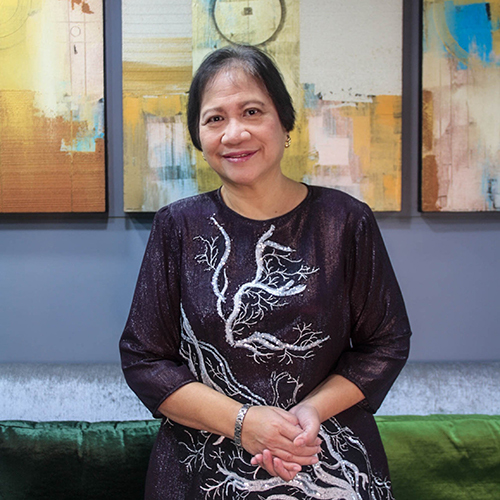
His mantra? “Nothing is ever too early, too soon or too much.”
And so MMC began implementing its strict infection prevention and control protocols even before it had its first COVID-19 case.
“We had our first COVID-19 case sometime in March,” relates Dr. Javier. “Non-pharmaceutical interventions like the wearing of facemasks, good personal hygiene and social distancing proved to be effective in flattening the rapid, steep curve of the contagion spread.”
But two weeks later, MMC declared that it had reached its full capacity in responding to more COVID-19 cases. Well, the numbers could have been higher if these safety protocols weren’t in place.
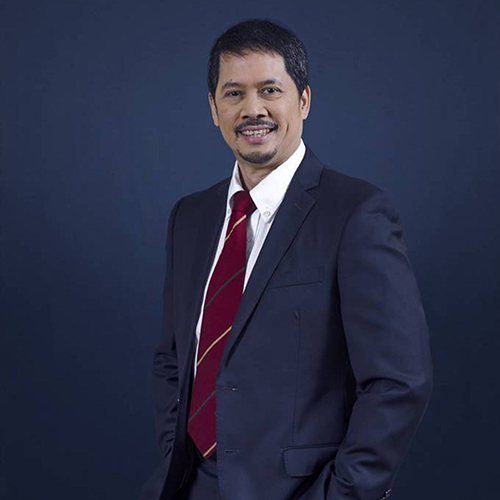
“We didn’t want to bite off more than we could chew,” explains Dr. Javier. “Declaring we’d reached our full-capacity was fair for both our patients and healthcare workers. We tried to limit the number of COVID-19 patients to make sure that they get the best quality care.”
As a novel viral infection, MMC closely adhered to whatever information came their way from those countries mentioned that had previous experiences with COVID-19.
MMC implemented all the previous policies and protocols, which were last used during the SARS and MeRs-CoV outbreaks many years ago.
“Also, it helped that MMC’s Pandemic Response Team was already mobilized because of the Taal Volcano eruption,” adds Dr. Javier.
MMC LOOKS COVID IN THE EYE
During the last seven to eight months, MMC has accommodated close to 41,000 COVID-19 suspects. Out of that number, 5,321 patients tested positive for COVID-19 as of Oct. 16.
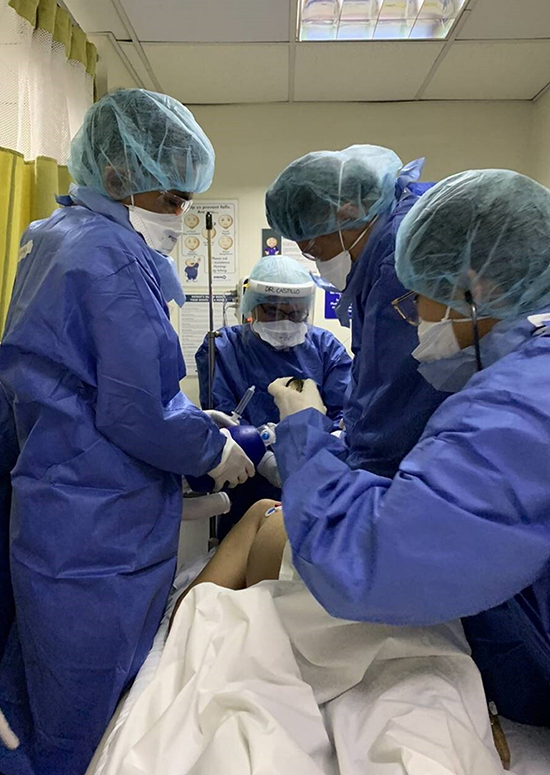
“We had 140 deaths and 5,072 recoveries,” says Dr. Javier. “In April, MMC had its first mortality, a physician who acquired COVID-19 from the community.”
These figures brought so much stress to MMC’s medical staff, who feared not only for their safety, but their loved ones as well. The coronavirus not only takes the lives of the old and frail. It’s now killing healthy doctors and nurses.
The Hippocratic oath is silent on a directive that doctors sacrifice their own lives in the practice of medicine.
“I feared for the medical staff from Day 1 of COVID-19 in MMC,” admits Dr. Javier. “I began to be engulfed in fear for myself and my family when the news of healthcare workers, especially doctors, succumbing to COVID-19 started circulating on social media sometime in mid to late March.”
Dr. Javier even experienced psychosocial stress.
“In one of our weekly meetings, we have mandated our Department of Psychiatry to come up with modules to address psychosocial stress, which I think is common in the workplace,” explains Dr. Javier. “At MMC, we protect the bench.”
The good news is “the case fatality rate or the mortality rate for COVID-19 patients at MMC is 2.6 percent, while the recovery rate is around 95 percent,” enthuses Dr. Javier.
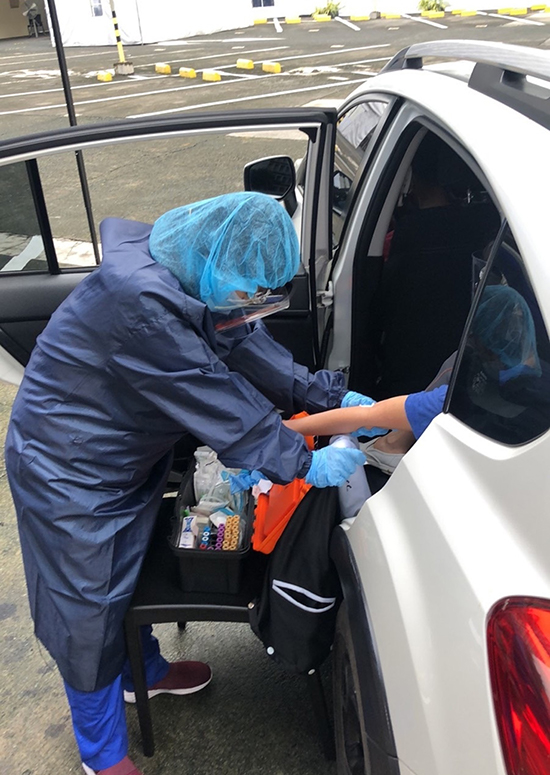
To contain the spread of the virus, MMC also delineated specific zones of the different floors of Tower 1.
“We also added negative-pressure areas, which can handle the load of COVID infection in our delivery rooms, PICU and NICU, cardiac cauterization laboratory, CV-OR Suite, Acute Respiratory Care Unit in Emergency Rooms,” enthuses Dr. Javier.
When asked to what he attributes MMC’s high COVID-19 recovery rate, Dr. Javier hastily replied, “Aside from the strict implementation of safety protocols for the ‘healthy normal,’ I attribute this to the topnotch quality of care being rendered by all MMC hospital teams. It also helped that we had access to the drugs, which had shown promise against COVID-19.”
MCC also made sure that it maintained the capacity that its medical teams could realistically handle and still extend the best quality of care.
“So it was crucial to determine when we had already reached our threshold — in terms of patient volume, bed allocation, ventilator availability, among others,” notes Dr. Javier.
Many of the clinics have also been retrofitted with the use of hepa filters and acrylic shields to ensure that there’s minimal contact between patient and physician.
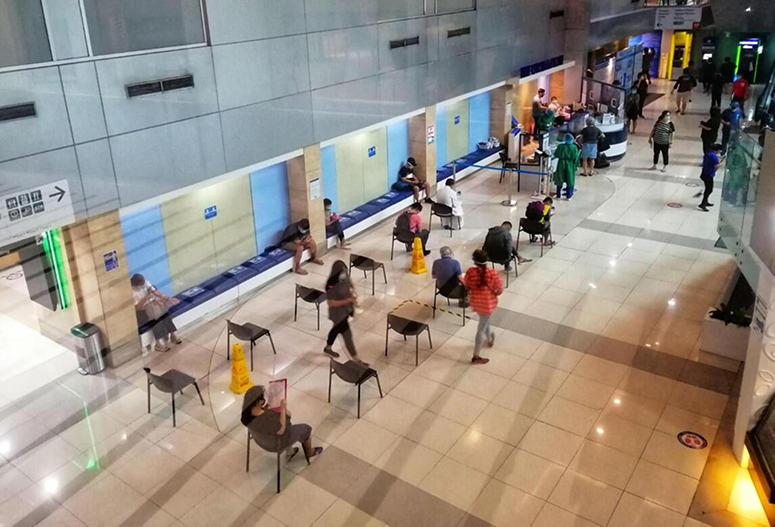
We even had to come up with retractable hoods with hepa filters for our emergency rooms to ensure that its held air from infected patients did not circulate in the premises of the emergency room,” adds. Dr. Javier.
MMC is grateful and takes pride in its low case-fatality rate, high clinical-recovery rate, and no casualties among front liners.
“We count our blessings every step of the way,” enthuses the competent and empathic healthcare leader. “We hope that the worst is over. But should there still be more challenging situations ahead, we’re certain that we will be able to cope.”
STRENGTHENING COMPETENCIES
As things begin to settle in the new normal, Makati Medical Center’s (MMC) new president and chief executive officer, lawyer Pilar Nenuca Almira, assures the public that MMC remains a safe haven for patients and healthcare workers despite a raging pandemic.
“At MMC, we are embracing the ‘healthy normal,’” enthuses Almira. “The MMC team works tirelessly to disinfect high-touch zones on and around the hospital premises.”
Almira, who came onboard in September 2020, gave us a quick look at how 2021 will look at MakatiMed under her leadership during an intimate, virtual press conference via Zoom.
“MMC is determined not just to grow in numbers, but to thrive in terms of the number of patients that we intend to serve, and in sustaining the viability of our hospital resource-wise,” Almira says. “We will also be the front runners in introducing new medical services.”
At MMC, learning and development will be a continuing journey, not only for the medical staff, but the administrative staff as well.
“We believe that our people are still the anchor of our hospital,” the lady CEO adds. “We want to make sure that our people are always ready to face whatever medical challenges come their way.”
Barely three months in office, Almira has clearly defined her learning curves at work. She has reviewed the accomplishments of her predecessors and is now working on MMC’s key initiatives for 2021, one of which is the expansion of its Home Care Services.
“We’re bringing the services we offer in the comfort of our patients’ homes,” shares Almira. “It could also be in corporate facilities. We know that some are still hesitant to go to the hospitals for fear of contracting the virus.”
Crisis brings opportunities. Because of the pandemic, MMC created diagnostic COVID-19 packages such as PCR , Antibody Testing and PCR-Antibody Testing; Onsite and off-site tesing, Drive-by or Drive-thru testing to better serve its clients.
Also on the drawing board is the expansion of MMC’s Renal Care Center, the creation of a Transplant Center.
“We would also like to be instrumental in bringing down the cost of quality healthcare,” enthuses Almira. “The advancement in technology helps us to efficiently perform our duties. Hopefully, we could share with our patients the savings that we will be generating from all these.”
Contrary to the popular belief that MMC caters only to the rich, Almira stresses that, “MakatiMed is inclusive. We have been receiving all types of patients. And we’re not discriminating at all. We provide the same care to everyone. And we’ve been successfully doing this for years.”
Banner image from Pexels


